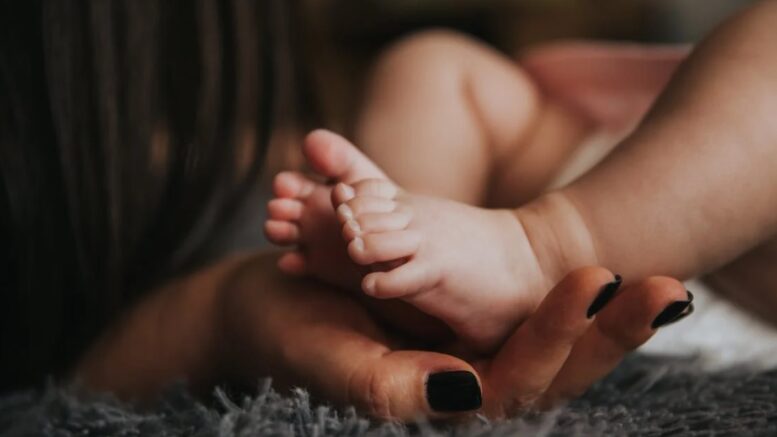A new mother’s life can undergo major physical and mental changes during the postpartum phase, which is the time after childbirth. It’s an exciting time of bonding with the baby. Still, it can also be difficult for new moms as they adjust to the duties of caring for a newborn, hormonal changes, and their physical recovery from childbirth. This post will look at five ways that postpartum impacts new mothers’ mental health and talk about coping mechanisms and getting help.
Postpartum Depression
In the first year following childbirth, postpartum depression (PPD), a prevalent mental health issue, affects many new moms. PPD symptoms might include a never-ending sense of sadness, irritability, changes in eating or sleep patterns, and trouble forming a relationship with the infant. PPD may impair a new mother’s capacity to function daily and make it difficult for them to handle the duties of caring for a newborn. For a diagnosis and course of therapy, new mothers who exhibit PPD symptoms must consult a medical practitioner or mental health specialist. Effective PPD management and recovery can result from identifying the symptoms and getting help as soon as possible.
Body Dysmorphia Concerns
Body dysmorphia may be a worry for some new moms who are thinking about having a mommy makeover procedure. A mental health disorder called body dysmorphia is typified by compulsive thinking about perceived physical appearance faults that may not be apparent to others. It’s important to understand that while mommy makeover cosmetic surgery might help some women regain their confidence and treat certain cosmetic difficulties, it might not be able to address underlying body image problems linked to body dysmorphia. A comprehensive psychological examination is essential for anybody thinking about having a mommy makeover surgery to make sure they are making an educated decision about their treatment and have reasonable expectations. Furthermore, receiving counseling or therapy from a mental health expert who specializes in issues related to body image can offer helpful support and direction.
Baby Blues
A more frequent and milder type of postpartum mood disorder that many new moms have in the days and weeks after giving birth is called the “baby blues.” Baby blues symptoms might include mood swings, crying, irritation, and a hollow or depressing sensation. Baby blues don’t usually need to be treated; they usually go away on their own after a few weeks. However, new moms should consult their healthcare professional for help if they have severe or persistent symptoms. The baby blues can be lessened and emotional well-being throughout the postpartum time can be promoted by having honest discussions about emotions and asking friends and family for social support.
Adjustment Difficulties
It may be difficult for new moms to get used to the rigors of parenting and the changes that accompany taking care of a child. A lot of women feel overwhelmed, unsure, and self-conscious when they adjust to being mothers. Anxiety and tension can also be exacerbated by hormone fluctuations, sleep loss, and adjusting to schedule changes. New mothers must take care of themselves, ask for help from loved ones, and be compassionate with themselves while they adjust to their new duties. Joining a support group for new mothers or seeking professional therapy might offer helpful advice and support during this transitional phase.
Social Isolation
Because it can be difficult for new moms to maintain social relationships and feel overwhelmed by the obligations of caring for a baby, social isolation is an important risk factor for postpartum mental health disorders. New mothers may experience increased worry, despair, and loneliness if they don’t have enough social support. New moms must seek out emotional support and company from friends, family, or support groups. Creating a network of other new mothers to lean on may offer affirmation, inspiration, and useful advice during this trying time. Participating in social gatherings for families and interacting socially with other parents can help prevent feelings of loneliness and support mental health during the postpartum phase.
Conclusion
For new moms, the postpartum phase is a critical period of physical and mental transformation and adjustment. It may be a joyful and fulfilling moment, but it can also present difficulties and problems, especially in terms of mental health. Women may manage this time with resilience and fortitude if they are aware of the ways that postpartum impacts new mothers’ mental health and seek help when necessary. New moms must put self-care first, ask for medical attention or mental health assistance as needed, and rely on their support systems for support and direction.
Article edited and fact checked by our editorial team.
References:
- Lopez-Gonzalez DM, Kopparapu AK. Postpartum Care of the New Mother. 2022 Dec 11. In: StatPearls [Internet]. Treasure Island (FL): StatPearls Publishing; 2024 Jan–. PMID: 33351433.
- Chauhan G, Tadi P. Physiology, Postpartum Changes. 2022 Nov 14. In: StatPearls [Internet]. Treasure Island (FL): StatPearls Publishing; 2024 Jan–. PMID: 32310364.
- Sultan P, Carvalho B. Postpartum recovery: what does it take to get back to a baseline? Curr Opin Obstet Gynecol. 2021 Apr 1;33(2):86-93. doi: 10.1097/GCO.0000000000000684. PMID: 33395109.
